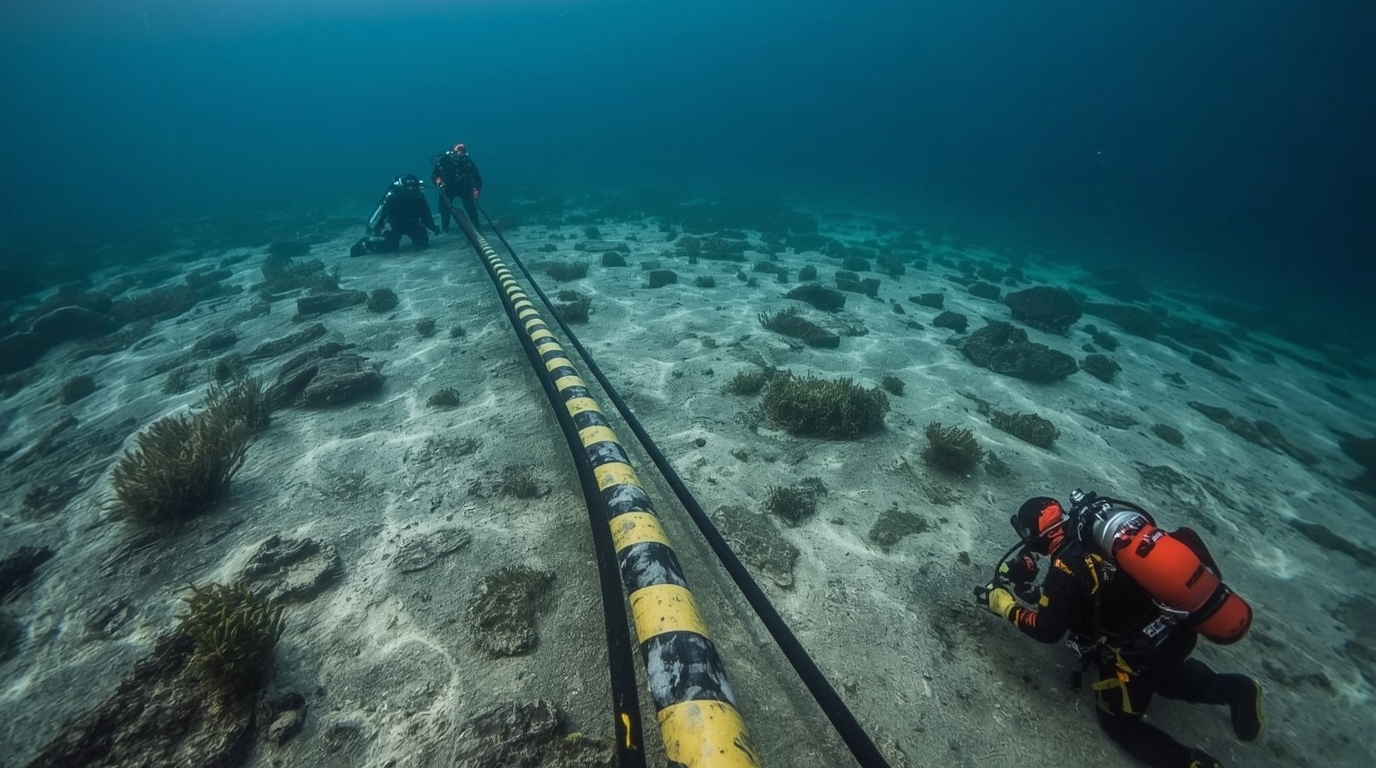
As we reported this morning, several undersea cables in the Red Sea have been severed, causing internet access delays and service disruptions in Asia and the Middle East. Microsoft said that its Azure cloud service has been significantly impacted, with slowdowns in data transmission between Asia and Europe via the Middle East.
As we know, the Red Sea is a crucial hub for global communications, connecting Europe, Africa, and Asia, and hosts strategic undersea cables such as SEA-ME-WE-3 and AAE-1. These cables handle 99% of international data transmission, and their damage directly impacts digital communications between three continents.
NetBlocks, which monitors internet access, said that “a series of undersea cable outages in the Red Sea have disrupted internet connectivity in several countries,” including India and Pakistan.

The Southeast Asia-Middle East-Western Europe (SEAME-4) cable is operated by Tata Communications, part of an Indian conglomerate, while the India-Middle East-Western Europe (IMWE) cable is operated by another consortium overseen by Alcatel-Lucent.
People have also begun to worry that the Yemeni rebel group “Youth Movement” (Houthis), in addition to attacking merchant ships traversing the Red Sea region, has also targeted Red Sea undersea cables to pressure Israel to end its military operations in the region. The Houthis continue to frequently threaten the security of the Red Sea. In early 2024, the Yemeni government accused the group of planning attacks against undersea cables in the Red Sea. Several cables were subsequently severed, but the Houthis denied responsibility at the time.
Users of the UAE’s state-owned telecom operators were reportedly complaining about slower internet speeds. Microsoft has implemented measures to redistribute network traffic and optimize routes, but repairing the cables requires specialized vessels and can take weeks or months. The cause of the outage is currently unknown, although similar incidents in the past have been attributed to naval operations, geological phenomena, or human error. The incident has rekindled concerns about the vulnerability of digital infrastructure.
Analysts note that, in an increasingly digital world, outages of this type significantly impact intercontinental network services and cloud platforms. The event underscores the need for governments and businesses to strengthen backups and alternative data routes to avoid widespread disruptions.
Microsoft confirmed that data normally transiting through the Middle East may experience increased latency, while traffic outside of this region was unaffected. Azure rerouted services through alternative routes, ensuring data traffic continuity.
In parallel, a report revealed a collaboration between Microsoft and Israeli Unit 8200 to monitor and archive all phone calls originating from the Gaza Strip and the West Bank. The project leverages Azure cloud technology and is one of the largest surveillance programs in the world.
According to the report, CEO Satya Nadella granted Unit 8200 access to a dedicated section of Azure to store, monitor, and analyze phone calls, which is directly used in Israeli military operations. Although the Israeli military controls communications in the region, the partnership with Microsoft allows for daily recording of civilian and military calls.
Follow us on Google News to receive daily updates on cybersecurity. Contact us if you would like to report news, insights or content for publication.
